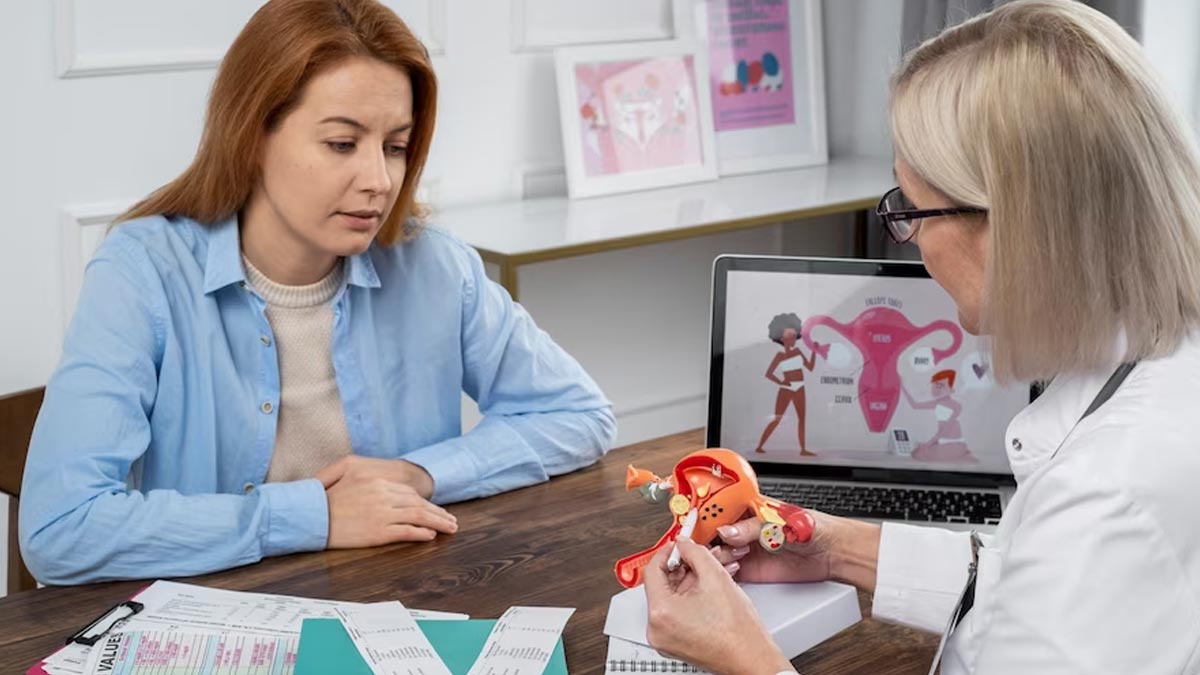
Gynaecological cancer, as the name suggests, is the cancer that develops in a woman’s reproductive organs. The most common gynae cancer include cervical cancer, ovarian cancer, uterine cancer, vaginal cancer, and vulvar cancer. There are different risk factors for each of these cancers, such as heredity, genetic mutations, HPV infections, exposure to hormonal pills, radiation, obesity, etc., but many women develop cancer without being high-risk. On this Gynaecological Cancer Awareness Month, we spoke to our expert Dr Pratima Raj, Associate Consultant – Gynaecologic Oncology, Manipal Comprehensive Cancer Center, Manipal Hospital, Old Airport Road, who explained gynaecological cancer and tips to protect yourself from it.
Table of Content:-
Symptoms of Gynaecological Cancer

Dr Raj said, “Each type of gynaecological cancer presents different symptoms, some of which can be challenging to identify.” He listed some of the common symptoms as follows:
- Abnormal vaginal discharge
- Abnormal vaginal/ uterine bleeding
- Abdominal pain
Dr Raj highlighted that symptoms like bloating, early satiety, low back ache, limb swelling, and breathlessness start to manifest in advanced stages. Paying attention to their own bodies can help women notice any unusual or abnormal signs in their early onset.
Types Of Gynaecological Cancer

Cervical Cancer (starts in the cervix)
Dr Raj said, “90% of cases of cervical cancer are linked to Human Papillomavirus (HPV) infection, which can be detected through Pap tests or HPV tests. Most women with HPV don't develop cervical cancer, however, regular screening is essential.”
Dr Raj added, “Most cases of cervical cancer can be prevented if abnormal cell changes in the cervix are found and treated early. These changes occur years before cancer develops, which can be detected on pap smear/ HPV-DNA tests. You can administer HPV vaccines to prevent this cancer.”
According to the Centers for Disease Control and Prevention (CDC), the HPV vaccine can be given as early as age 9, although it is advised for preteens between the ages 11 and 12. It is also recommended for anyone up to the age of 26 who has not been vaccinated.
Also Read: Worried If Cervical Cancer Can Lead To Infertility? Here's What Expert Has To Say

Uterine Cancer (develops in the uterus)
While any woman can develop uterine cancer, it is more common in postmenopausal women. Dr Raj advised to watch out for symptoms like abnormal vaginal discharge or bleeding and pelvic pain or pressure is crucial for early detection. He listed its risk factors as follows:
- Age (above 50)
- Obesity
- Hormone replacement therapy
- If you have a family history of ovarian, uterine, or colon cancer, the risk increases

Ovarian Cancer
Dr Raj said, “Ovarian cancer causes more deaths than any other gynaecological cancer. While early detection brings great survival rates, only 20% of such cancers are diagnosed early. This is partly because there is no routine screening for symptom-free women, and symptoms like unusual abdominal bloating, pain, or early fullness when eating (satiety) are easily overlooked or mistaken for other issues.”
Dr Raj added, “For women who experience these symptoms, or who are at higher risk, a doctor may recommend screening which may include rectovaginal pelvic exams, transvaginal ultrasounds, or CA-125 blood tests.”
Vaginal and Vulvar Cancer
Dr Raj highlighted, “Like cervical cancer, vaginal and vulvar cancers are also associated with HPV infection. Nearly 90% of vaginal cancers and precancers and more than 50% of vulvar cancers are associated with the presence of high-risk HPV types. Vaccines against HPV, capable of averting certain high-risk HPV strains, also offer protection against vaginal and vulvar cancers.”
Also Read: Vulvar Cancer: Expert Explains Symptoms, Causes, Prevention, And Treatment
Tips to Protect Yourself From Gynecological Cancer

Gynaecological cancers can be cured if diagnosed early and treated with no delay. Dr Raj said, “Avoiding risk factors and following preventive measures can alone prevent almost 30-50% of such cancers.” Follow these expert-recommended tips to protect yourself from this cancer:
- You should exercise regularly and aim to keep a healthy weight. This will help in maintaining your overall health and prevent the risk of various diseases and infections.
- Follow a healthy diet regime that is rich in fruits and vegetables. Also, avoid tobacco and alcohol consumption.
- Refrain from exposure to harmful ultraviolet and ionising radiation.
- Learn about your bodily changes. Dr Raj said, “Observe how your body normally looks, feels, and reacts when healthy. If you notice any changes, tenderness, pain, abnormal bleeding, abnormal discharge, or any of the symptoms you should schedule an appointment with a gynaecologic oncologist as soon as possible.”
- Know all the risk factors of gynecologic cancers, including your family history of ovarian, cervical, uterine/endometrial, or breast cancer. However, anyone with female reproductive organs can be affected by gynaecological cancer, regardless of risk factors.
- Undergo regular screenings following what your doctor recommends.
- When diagnosed early, gynaecological cancers are highly treatable with good prognosis.
- Always practise safe sex and get vaccinated against Hepatitis B and HPV.
[Disclaimer: The information in this article is shared by a registered healthcare professional and is for informational purposes only. Hence, we advise you to consult with your expert if you notice any symptoms to diagnose cancer early and get the treatment started.]
Also watch this video
Read Next
Blood Cancer Awareness Month: Exploring Ayurveda, Acupuncture, And Art Therapy To Manage Symptoms
How we keep this article up to date:
We work with experts and keep a close eye on the latest in health and wellness. Whenever there is a new research or helpful information, we update our articles with accurate and useful advice.
Current Version
